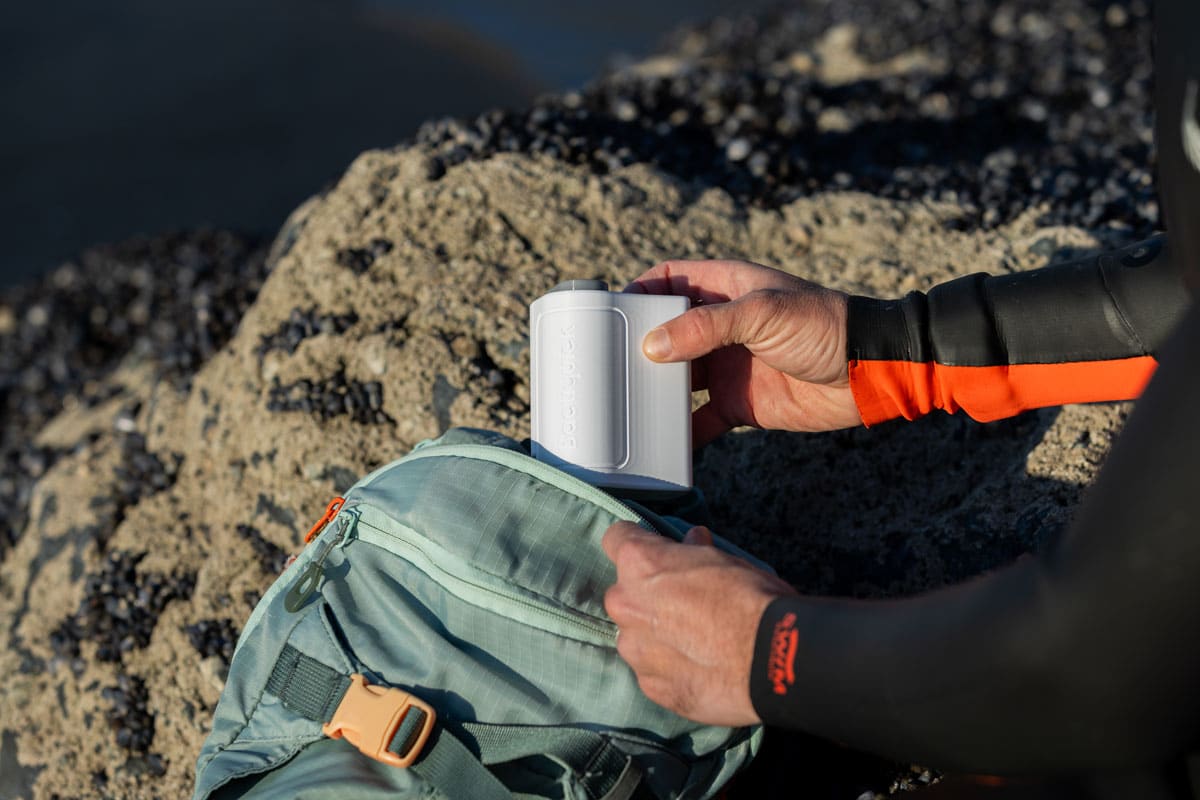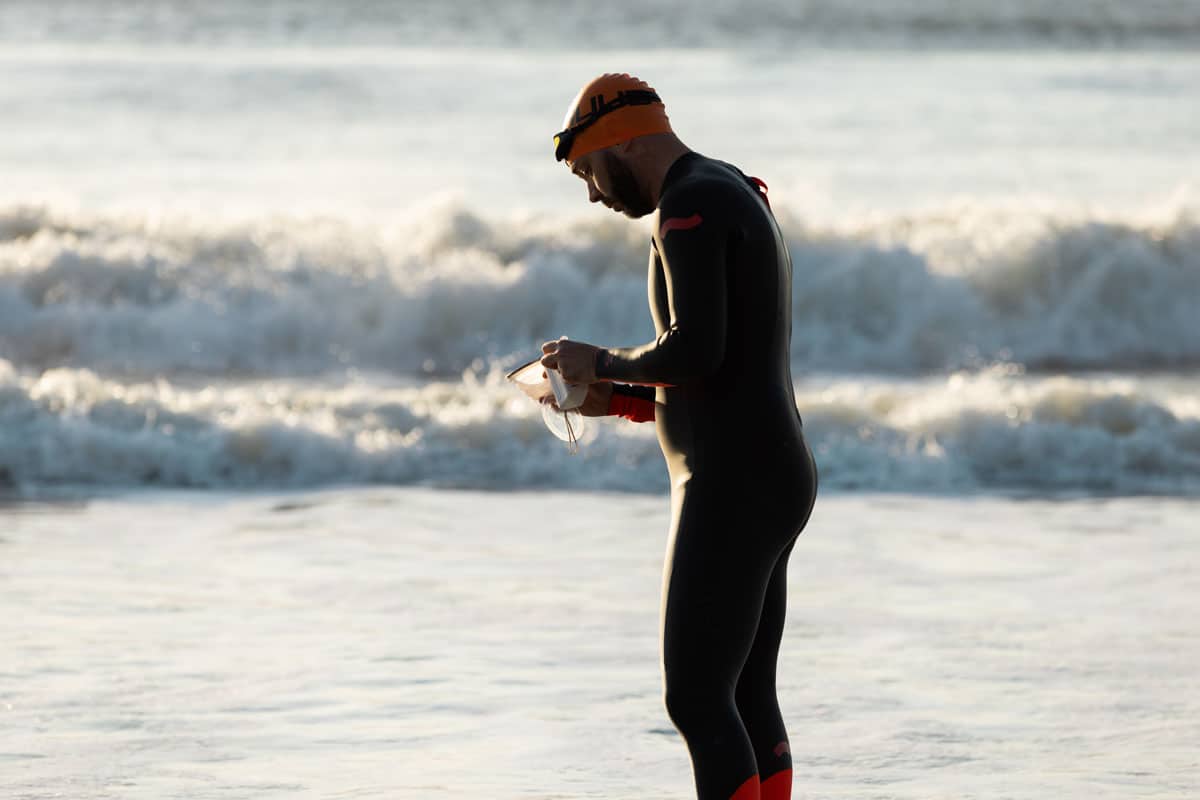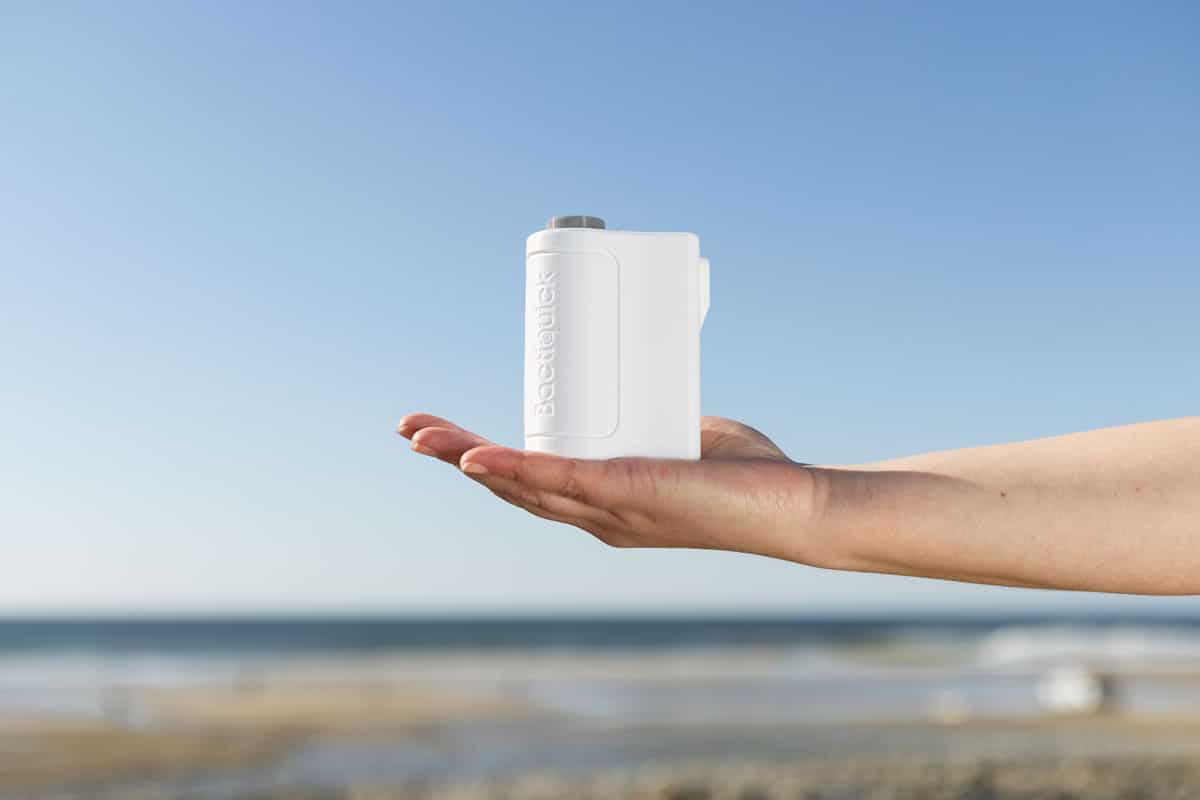
First-of-its-kind handheld device launched to protect public health through real-time water quality testing
Skip a dip and miss out if there’s a pollution alert or take the plunge and risk getting sick? Everyday water users no longer need to make the choice with new Bactiquick real-time water testing device.
A South West based technology company has launched a first-of-its-kind water quality testing device to protect public health, giving everyday water users real-time insight into the health risk posed by taking a dip.
Released just in time for the start of the official bathing water season on 15th May, Bactiquick takes the unknown out of diving in. While traditional water quality tests take 24 hours or more to produce results, causing people to either risk exposure to high levels of bacteria in the meantime or needlessly miss out on doing what they love, the handheld innovation provides reliable results in just 15 minutes – putting the decision to dive in or stay dry in the hands of swimmers, surfers and adventurers.
As the world’s first portable device to test water quality in an instant using endotoxin technology, Bactiquick also detects a wider range of bacteria than most other tests. Beyond the standard E. coli test, it also assesses the chance of picking up a range of nasty bugs which can lead to UTIs, typhoid fever, Legionnaires’ disease and many more illnesses.

The revolutionary device has been designed and created to protect public health and water ecosystems by Molendotech based at the Health & Wellbeing Innovation Centre in Truro and the University of Plymouth Brixham Laboratory. Founder, Chief Scientific Officer, Professor Simon Jackson, says: “Despite having some of the most beautiful beaches in the world, the UK ranks last in Europe for bathing water quality. Bacteria in our rivers and ocean is a real risk for water lovers’ health.
“Pollution from untreated sewage, agricultural runoff, septic tanks and even wildlife can cause high levels of bacteria. And factors like tides, currents and wind direction mean that these are changing constantly. That means when results are released, they are probably already out of date and only scratch the surface when it comes to testing for bacteria – bathing water with a high risk red alert may have changed to low risk in the 24 hours since testing, while a green area could actually be a no-go. Real-time testing is essential.”
“Our break-through technology provides rapid results and is much more reliable. Water users no longer need to rely on traditional methods and choose between skipping a dip if there’s a pollution alert or risk getting sick if they take the plunge. Everyone deserves to know the water qualitybefore diving in,” continues Professor Jackson.
Several water companies are in discussions with community groups to support in rolling out the use of Bactiquick in localised areas. The technology is also being trialled and is making an impact among community swimming groups, environmental campaigners such as Surfers Against Sewage and public organisations. Sidmouth Town Council in particular has embraced the technology to help protect public health. During the summer, Sidmouth Lifeboat Lifeguards will be using Bactiquick to test the water quality on a daily basis and sharing the results with the local community and visitors to enable them to make an informed decision about enjoying the water.






